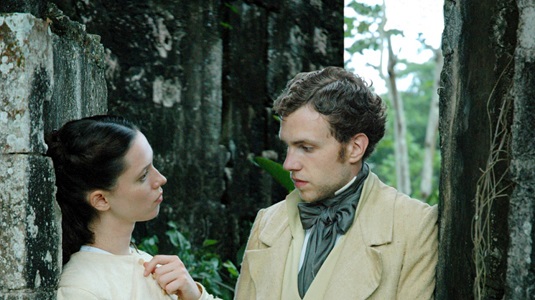
Get In by Patrick Maguire and Gabrield Pogrund
Declaration by Michael Hardt and Antonio Negri
Grass by Sheri S Tepper
The Wide Sargasso Sea by Jean Rhys
The Wild Shore by Kim Stanley Robinson
Agonistics by Chantal Mouffe
Children of Ruin by Adrian Tchaikovsky
Birthright: The Book of Man by Mike Resnick
Cat's Cradle by Kurt Vonnegut
For a Left Populism by Chantal Mouffe
New Tales of the Cthulhu Mythos edited by Ramsey Campbell
Toward a Green Democratic Revolution by Chantal Mouffe
Intrusion by Ken MacLeod
Light by M John Harrison
Some of my reading is groping toward issues around hegemony and anti-hegemony, hence the Hardt and Negri and the Mouffe. Re: her work on hegemony, like many socialists of a certain vintage Mouffe's famous/infamous Hegemony and Socialist Strategy, authored with Ernesto Laclau, never sat well with me. As a good Althusserian I enjoy a textual expunging of essentialisms as much as anyone else, in their case against treating politics as simple expressions of class. They argue there isn't a necessary correspondence, let alone a guarantee that ensures our class takes up socialist politics. Instead politics has to be articulated by organisations and parties through the formation of hegemonies and hegemonic blocs. While this latter point is true, there is obviously a relation between class and politics, which we see when classes and strata always tend toward certain parties. This is empirical fact, and is a pattern we see repeated across all liberal democracies. The explanation lies not in essential relations and simple correspondences, but the inertia of history and life experience. I.e. Broadly similar experiences of living in capitalist societies spontaneously produces broadly similar and shared outlooks, which inculcates certain dispositions and tendencies towards certain kinds of politics. Don't get me wrong, there is much that is valuable in Mouffe's work and I find it persuasive, but the autonomy of the political is not something I can get on board with.
More of that another time. Novels-wise, there were plenty of highlights. Tepper's Grass was a slow burn, unlike the fires that rip through the book. The world building was spot on, the characterisation well done, and the story compelling. Tchaikovsky's sequel to Children of Time was a worthy successor. As inventive as that celebrated book, it doubles down on the multiplicity vs oneness dynamic, the speculative sociology and psychology, and also is a white knuckle ride of a novel. Excellent stuff. Our Ken's meditation on New Labour-y nanny state authoritarianism was a timely read now that a worn out tribute act is in office. Intrusion is a paranoid classic, and the Kafkaesque climax is as gripping as it is technically brilliant. Lastly, Harrison's Light, the first of his I've read, was remarkable. Some of the best writing and character work you'll find anywhere, not just several thousand light years from Earth. A serial killing protagonist, shades of eldritch horror, mind games, and hard physics are seamlessly blended together. One of the best sf novels of this century.
Alas, there were downers too. I know The Wild Shore was well reviewed on release, but is very YA without realising it and, even worse, is quite boring. Not one of KSR's best. Also disappointing was the Cthulhu collection. The key note story, Stephen King's Crouch End was too heavy handed in my view. Attanasio's The Star Pools was a short of two halves, with the latter half being excellent while the first didn't work. And the others were a mixed bag, a hybrid of entertaining and try hard. Apologies if I've trodden on the toe/flippers of Old Ones fans. But truly terrible was Resnick's Birthright, a series of linked vignettes taken from his future history sequence about the rise and fall of our species. Nothing more need be said - I'm saving my venom for the end-of-year worst books list.
What have you been reading recently?
Image Credit
5 comments:
I've been reading:
'Squatter Citizen' (Earthscan) by Jorge E Hardoy & David Satterthwaite
'In the Cities of the South' (Verso) by Jeremy Seabrook
'Englishness: The Political Force Transforming Britain' (OUP) by Richard Wyn Jones & Ailsa Henderson
'Untied Kingdom: A Global History of the End of Britain' (CUP) by Stuart Ward.
Just started Philip Jose Farmer's Riverworld sequence, which has looked at me from any number of second-hand shelves without my ever getting around to it till now (though I did read his demented SF-horror diptych Image of the Beast and Blown). I still don't know whether it will amount to more than a big-concept adventure story with some high-class historical name-dropping, but the first book certainly isn't boring.
Just finished re-reading all 6 Queen’s Thief novels by Megan Whalen Turner. 1-3 great, 4 good, 5 dull, 6 good. You can skip 5 entirely.
"Prophet" by Sin Blanche and Helen MacDonald. Sci-fi for the AO3 era. It's beyond marmite in that most readers will probably love and hate it at the same time. But for fans of mind-blending science fiction, and/or horror, and/or the most stretched-out, overwrought gay romance that you can imagine, there's something in it somewhere that will tickle you and stick with you.
Good to see you liked Intrusion. I was puzzled by 'Kafkaesque' until I remembered the interrogation scenes. And I haven't even read Kafka -- just kept half an eye on British legislation. With the Palestine Action ban, maybe the book's time has, as you say, come around again.
Post a Comment